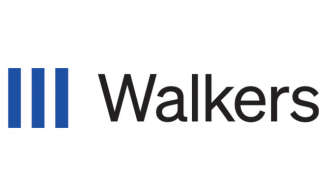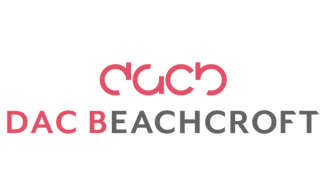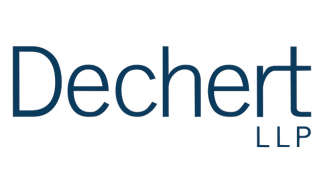What is the current state of Irish legislation on ESG?
Environmental, social and governance considerations have always been important to our clients but in recent years conversations about ESG matters have risen to the top of many organisations’ agendas, especially following the pandemic.
At Arthur Cox, we have seen demand for ESG-related advice increase over recent years and we expect that trend to continue as ESG considerations are pondered by governments, regulators, companies, investors and wider society.
The Irish legislative landscape on ESG matters is made up of domestic and EU measures (all of which exist in the context of global initiatives and discussions).
ESG touches upon multiple policy areas, such as climate action, biodiversity, energy, water, financial services, commercial enterprise, and transport. This means that legislation on ESG covers a broad range of topics and has an impact on multiple stakeholders.
When we talk about ESG, many of the legislative measures over the past decade have focused on the E of ESG, ie environmental goals (particularly those related to climate), but it is important to remember that there have also been significant legislative and policy initiatives connected to the S and the G.
Irish domestic initiatives over recent years are many and varied. They include the publication of Ireland’s first statutory National Adaptation Framework in 2018, the passing of the Climate Action and Low Carbon Development (Amendment) Act in 2021, committing Ireland to specific greenhouse gas emission reduction targets by 2030 and 2050, the Circular Economy and Miscellaneous Provisions Act in 2022 (supporting Ireland’s transition to a circular economy) and the Work Life Balance and Miscellaneous Provisions Act in 2023 (setting new ‘S’ rules for Irish workers).
At an EU level, measures such as the European Commission’s 2018 Action Plan on Financing Sustainable Growth, 2019 Green Deal and 2021 Sustainable Finance Strategy have led to a proliferation of European legislative measures, some of which are directly effective in Ireland with others being transposed into Irish law.
Are there any recent or upcoming changes to Irish ESG legislation that our readers should be aware of?
There are a number of measures that Irish businesses should be aware of and the key one to mention is the Corporate Sustainability Reporting Directive (CSRD).
Irish legislation transposing the Corporate Sustainability Reporting Directive (CSRD) is expected to be published ahead of the 6 July 2024 deadline. Companies within scope of the first phase will be preparing to report in 2025 on FY 2024.
We recognise that ESG considerations are impacting all of our clients across sectors not just through law and regulation but through other potential ESG-related exposures.
What legal obligations do Irish companies have in terms of ESG reporting?
Many of the legal obligations concerning ESG in Ireland stem from EU legislation. The focus of EU ESG measures in recent years has been on disclosure and reporting (as opposed to mandating specific actions).
The measures include those set out in:
- the Non-Financial Reporting Directive (2014/95/EU)
- the Corporate Sustainability Reporting Directive (EU) 2022/2464
- the Sustainable Finance Disclosures Regulation (EU) 2019/2088
- the Taxonomy Regulation (EU) 2020/852
- the Capital Requirements Regulation (EU) No 575/2013
- the Low Carbon Benchmarks Regulation (EU) 2019/2089
- the Climate Law Regulation (EU) 2021/1119
- the Gender Balance on Corporate Boards Directive (EU) 2022/2381
How does Irish law enforce ESG disclosure by companies?
Enforcement covering matters that are now labelled ESG is not new. Up to now, Irish law has overseen ESG disclosures under general rules of company law, eg, through examining company reports for material misstatements. Given the new and upcoming ESG-specific disclosure requirements, we expect enforcement to become increasingly robust with companies’ sustainability information being scrutinised by various stakeholders including regulators, lenders, insurance companies, shareholders and the general public.
The reach of ESG regulation is very broad and the regulatory sanctions will vary depending on the particular regulator engaged by the event that triggers an investigation. The regulatory and reputational implications of investigations are likely to be particularly significant if greenwashing allegations emerge.
It is important to remember that enforcement action by regulators is not the only means by which company disclosure will be scrutinised and challenged and we expect a rise in actions through litigation.
What are the penalties for non-compliance with ESG regulations in Ireland?
Regulatory sanctions will depend on the nature of the specific regime engaged. They can include directions, cautions, reprimands, fines, suspensions or revocations of authorisations.
Given the number of different sources of ESG regulations in Ireland, it may be most helpful to give an illustrative example. Taking the CSRD as that example, the CSRD will require companies to report sustainability information in compliance with new reporting standards. Failure to comply with these standards can result in substantial fines, eg, financial penalties of up to €50,000 and administrative fines of up to 2% of a company’s annual average revenue if it exceeds €400m.
Outside formal, financial penalties, it is also important for companies to consider the reputational risks associated with getting ESG disclosures wrong.
How does Irish ESG legislation address social issues such as employment rights and diversity?
Irish ESG legislation has been increasingly attentive to social issues, including employment rights and diversity, which underscores a broader commitment to equality, diversity and inclusion issues.
The introduction of the Gender Pay Gap Information Act in 2021 marked a significant step towards transparency in the workplace, requiring organisations with more than 250 employees to report gender pay gap metrics. From 2024, companies with 150 employees or more will be required to submit gender pay gap reports, and from 2025 this will be extended to companies with 50 employees or more.
How does Irish legislation ensure the environmental aspect of ESG, specifically in terms of sustainability and climate change?
Irish legislation has taken significant steps to ensure the environmental aspect of ESG, particularly focusing on sustainability and climate change.
The Climate Action and Low Carbon Development (Amendment) Act, signed into law in 2021, commits Ireland to a legally binding path to net-zero emissions by 2050 and a 51% reduction in emissions by 2030 from a 2018 baseline.
This act is a cornerstone in Ireland’s framework to meet its international and EU climate commitments, aiming to transform the economy towards a greener future.
What is Arthur Cox’s approach to ESG issues in its legal practice?
At Arthur Cox, we recognise that ESG considerations are impacting all of our clients across sectors not just through regulation but through impacts on their business proposition.
Our ESG group works with our clients to identify and integrate ESG priorities at all levels of their businesses. We advise clients on areas such as energy transition, climate action, sustainable finance and green bonds, ESG disclosures and sustainability reporting, sustainable real estate investment and development and green leases.
What sets us apart from other firms is the breadth and cutting-edge nature of our ESG practice. Our ESG group is at the forefront of the market, providing clients with advice across the entire ESG space.
We have assembled a cross-disciplinary team of experts who bring a wealth of knowledge and experience across sectors to work with our clients to meet their ESG-related goals and obligations.
Our approach is collaborative and client-focused. We work closely with clients to understand their unique goals and challenges, providing tailored solutions that reflect the latest legal updates and industry insights.
What measures has your firm taken to improve its own ESG performance?
Sustainability for us involves a commitment to robust governance, policies, and practices. That commitment includes a relentless focus on diversity and inclusion, respect for human rights, responsible procurement and environmental sustainability. The integration of each of these elements is a key part of the decision making for our business.
Our ESG strategies are overseen by our Sustainable Business Committee, which manages our Sustainable Business Programme. At the core of this programme is the annual publication of our Sustainable Business Impact Report. Launched in 2021, this report is a comprehensive overview of our initiatives and accomplishments across four essential dimensions: community, workplace, marketplace, and environment. By aligning with the UN Sustainable Development Goals, we aim to show our commitment to global sustainability standards.
We aim to play an active role in contributing to positive change while minimising our environmental impact through a programme of monitoring and continuous improvement.
What are the biggest ESG challenges your firm currently faces, and how are you addressing them?
As a firm, we have set ambitious targets in relation to reducing our Scope 1, 2 and 3 emissions. Over the past 12 months, we have continued to work with our people and external stakeholders to assist us in the delivery of the key measures required to achieve our carbon reduction goals.
Our work in this area is continuing and we are very aware that we need to continue to work with our people to reduce our carbon footprint as an organisation. To address this, we are working hard to explore alternatives so that we can provide more sustainable options through an updated travel policy, online meetings, events and other operations.
How does the firm assist clients in integrating ESG factors into their business strategies?
We assist clients in navigating reporting obligations and advise boards on strategic planning, risk management and internal controls to support disclosure in relation to their business operations and value chains.
Our ESG group advises on disclosure and sustainability reporting obligations in relation to climate, diversity and other aspects of ESG in compliance with local and international legislation and voluntary frameworks, including the CSRD, the Taxonomy Regulation and Task Force on Climate-related Financial Disclosures.
We also advise companies on all aspects of their governance arrangements. Board governance and oversight is essential in developing and delivering effective ESG strategy, managing risks including activism and litigation, supporting robust disclosure and maintaining stakeholder engagement.
We provide regular ‘horizon scanning’ insights to legal teams and company boards regarding ESG-related developments and advise boards on topical issues including board diversity, executive remuneration, directors’ duties and the implications of new legislation such as the proposed Corporate Sustainability Due Diligence Directive (CSDDD).
Can you share some examples of how Arthur Cox has helped clients navigate complex ESG issues?
Our ESG team offers advice on a multitude of complex ESG issues, such as:
Environmental: Under the environmental pillar we advise on energy system transition, energy efficiency and demand side response, resource management and the circular economy, carbon sequestration and emissions reduction, sustainable finance, climate-related plans, disclosures and activism and environmental due diligence.
Social: On the social side, we have extensive experience advising on the social impacts of organisations on internal and external stakeholders. We advise on equality and discrimination matters, environment, health and safety issues, community investment and capacity building as well as human rights and the rule of law.
Governance: Good governance is a core aspect of ESG, and our team regularly advises clients on all aspects of their governance arrangements, including areas such as strategic oversight, risk management, shareholder engagement and reporting and transparency.
For more information, please contact:

Sarah Thompson, partner, Arthur Cox















